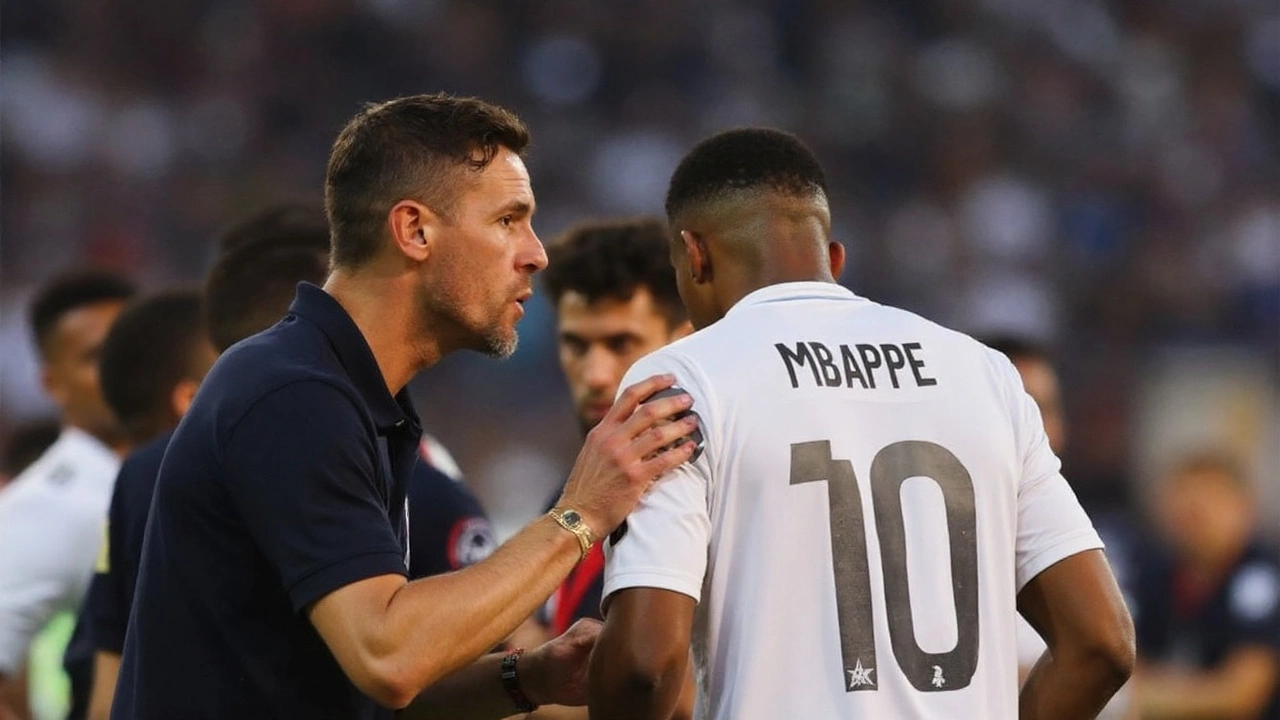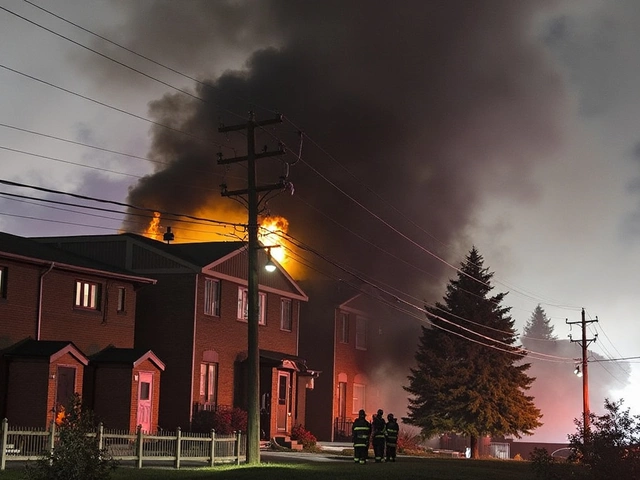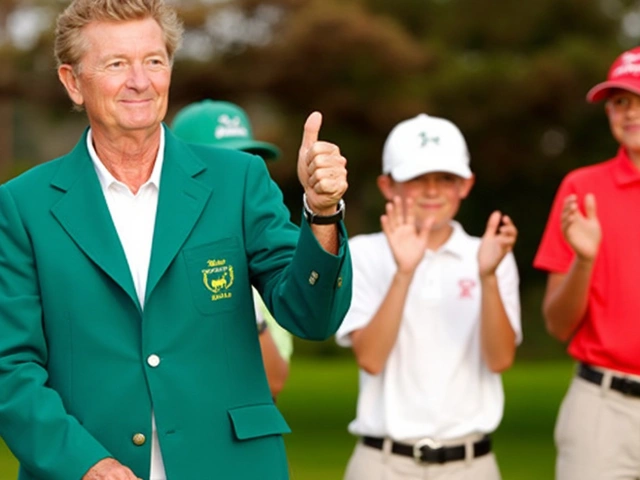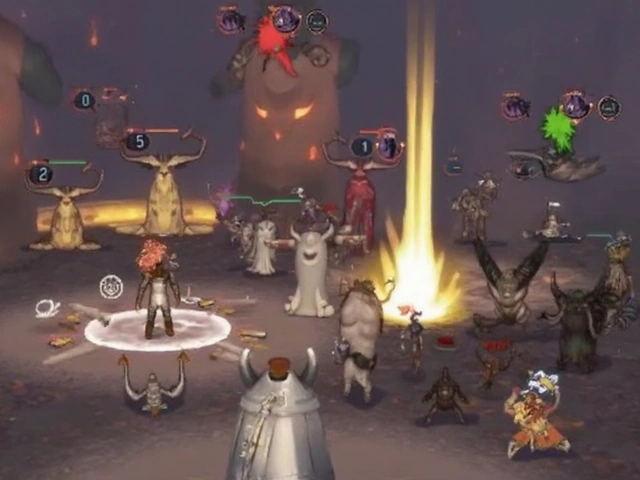Mbappé finds his range as Madrid bank first away win
No fuss, no drama—just a clean 3-0 that said plenty about where Real Madrid are heading under Xabi Alonso. Away to newly promoted Real Oviedo at a noisy Estadio Carlos Tartiere, Madrid took a while to settle, then moved through the gears and killed the game with a ruthless edge that has been missing on too many road trips in recent seasons.
Kylian Mbappé needed only two clear looks to tilt the night. He opened the scoring in the 37th minute with a guided finish to the far corner after sharp control from Arda Güler’s threaded pass. Then, late in the second half, he doubled the lead with a low strike into the bottom corner—calm, precise, inevitable. Oviedo keeper Joan Femenías Escandell denied his hat-trick with a flying save, but the damage was done. In stoppage time, Vinícius Júnior—who started on the bench—streaked away to add the third with a neat right-footed finish, the kind of counterpunch that empties stadiums early.
The headlines will orbit around Mbappé, for obvious reasons. On a night when Kylian Mbappe needed only two clear chances, his movement off the last defender and his timing in transition were the difference between an even game and a comfortable scoreboard. But this win also belonged to the structure around him. Madrid looked balanced—front to back, right to left. That’s Alonso’s mark already.
Madrid did not have it all on their terms from the start. Oviedo tried to sprint at them early, testing depth with direct balls and second runs. Thibaut Courtois had to be alert to a long pass over the top inside the opening minutes, racing out to smother. The hosts were backed by a full house, and they pressed high in bursts, hoping to force a mistake from a back line that has been retooled around a more compact shape. The press had bite, but Madrid handled it and picked their moments to stretch the game.
The breakthrough came from patience. Güler kept drifting into pockets between Oviedo’s midfield and back line, turning under light pressure and sliding passes into the channel. That’s how the opener was born—simple details done fast. A touch to settle, a pass rolled at the right weight, and Mbappé did the rest.
After the interval, the pattern hardened. Oviedo still had energy, but Madrid controlled the rhythm. Aurélien Tchouaméni anchored the middle, switching the play and screening counters. There was a flashpoint in the buildup to the first goal—Oviedo protested a possible foul by Tchouaméni on Leander Dendoncker in midfield—but the referee waved it on, and Madrid capitalized on the broken field. Those are the moments that swing tight games away from home.
Rodrygo, back in the starting XI for the first time since the Club World Cup opener in June, was lively from the first whistle. He forced the initial save of the night inside three minutes and kept driving at his full-back, either cutting in to combine or hitting the byline. His return gives Alonso a different kind of pace and directness on the wing, and it showed in a dominant first half spell when Madrid stacked chances down the right.
Vinícius had to wait for his turn. Alonso kept him on ice to change the game state late, and the plan paid off. Once he came on, he immediately created one chance and then finished another on the break in stoppage time. It was a reminder: even from the bench, he changes the way back lines defend space.
Courtois had a quiet night after that early scare. The defensive group in front of him—new faces and familiar ones—looked settled, with better distances between the lines than we saw at times last season. Oviedo enjoyed a few promising spells, especially right after kick-off and again around the hour mark, but Madrid’s defensive unit held the edge in duels and cleared their box without panic.
The table will not be decided in August, but results shape mood. Madrid’s win keeps them perfect through two matches, one of only three clubs to have done so. Villarreal’s 5-0 demolition of Girona leaves them top on goal difference for now. Madrid won’t mind. The bigger takeaway is the feel of the team—more control, more clarity, and a front line that looks built for the grind of a long season.
What Alonso changed — and who stood out
Alonso leaned into flexibility. Madrid moved between a 4-3-3 in possession and a 4-4-2 without the ball, with Güler stepping up to link and Valverde stretching the right side. That flip gave Madrid width on one wing and a playmaker between the lines, a clean platform for Mbappé’s runs into space.
Güler was the metronome and the risk-taker in one. He kept the tempo brisk with one-touch passes, then picked his moments to break the line. On another night he might have scored himself—he nearly poked home in a box scramble—but his assist and chance creation will be what sticks. You could see the trust building with every touch.
Tchouaméni did what the best holding midfielders do: make games feel uneventful in the middle third. He took pressure off the back line, recycled possession when Madrid needed to breathe, and punched passes into the front three when counters opened. The Oviedo crowd made their feelings known about that challenge on Dendoncker before Madrid’s first goal, but outside of that sequence he kept the game clean.
Federico Valverde gave Madrid a right-side engine. His recoveries stopped counters before they formed, and his early cross almost handed Mbappé a chance at the back post. He and Rodrygo overloaded that channel often, forcing Oviedo’s back line to shift and opening the half-space for Güler.
Franco Mastantuono showed flashes of why the staff rate him. He found smart pockets, nearly converted from a Güler cross before the break, and drew a loud penalty appeal in the 15th minute after contact in the box. The referee waved it away, but the movement was the point—young legs, fearlessly attacking space.
As for Oviedo, the step up to La Liga was always going to be steep. They were brave, they were organized, and Escandell’s late save on Mbappé kept the scoreline from running away. The margins are thin at this level: one missed tackle on the turn, one run tracked a second too late, and a heavyweight makes you pay.
- Kylian Mbappé: two goals, constant threat off the shoulder, denied a hat-trick by a top save.
- Arda Güler: assist, control between the lines, passing that broke Oviedo’s shape.
- Rodrygo: first start since June, early shot on target, direct running throughout.
- Vinícius Júnior: super-sub cameo—created one, scored one in stoppage time.
- Aurélien Tchouaméni: tempo setter, shielding in transition, at the heart of the game’s key sequence.
- Thibaut Courtois: one early intervention, assured handling, clean sheet.
The small details matter on nights like this. Madrid’s rest defense—how they set up behind the ball when attacking—looked tighter, which let full-backs support without leaving space to attack. The distances between midfield and defense held firm, so Oviedo’s long balls forward rarely became second-phase danger. Up front, the timing of runs was coordinated: when Rodrygo went wide, Mbappé attacked the near channel and Güler slid into the slipstream for cut-backs. It looked rehearsed because it was.
That’s the early imprint of Alonso’s staff: repeatable patterns, a team that knows where the next pass should be, and the confidence to stick with the plan away from home. It’s only week two, but Madrid already look like a side that can win in different ways—by grinding, by countering, or by letting their stars decide it in a flash.
Next up is a tougher stretch on paper, and we’ll learn more when the schedule tightens. For now, Madrid leave Asturias with three goals, three points, a clean sheet, and the sense that their new attack is just getting started.





